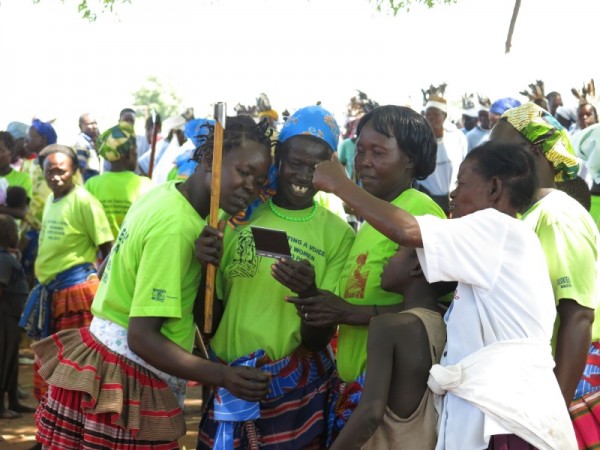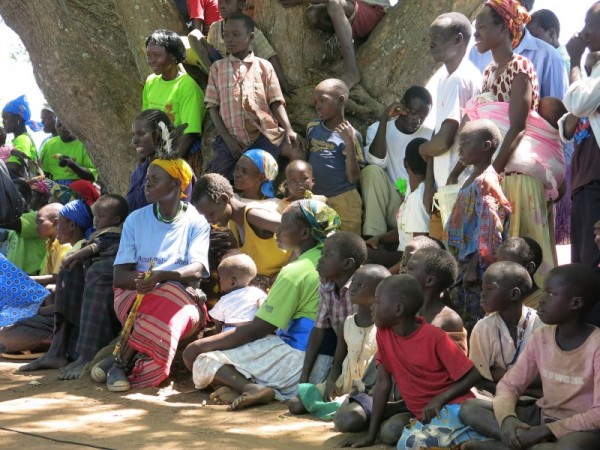Evelyn Ojok, an Acholi woman of 55, performed with the group ‘Ume Udoko Mit’ on our first recording day in Northern Uganda. Our location was the town of Acet, where Joseph Kony was born and raised. The name of their group refers to a water well: a very relevant symbol, as this community has served as a valued resource for the women involved. In the conversation we had below she tells their story..
Tell me about your group:
Ume Udoko Mit started to sing together before the war, but we had to stop during the war because most of us were moved to IDP camps where we had little time to rehearse together and the conditions were too bad. Now we sing and dance together all the time, we are only women (our style of ‘Apiri’ in Acholi is typically only performed by the women). Today the reason there was a man playing the drums is because one of our women is sick, normally there are no men in the performance. In Gulu when I want to meet with the other women I play drums and they all come, usually in the evening. I want to push the music to it’s highest level so that we can get some sponsorship from NGOs or from the Ugandan Government. I have opened up a bank account for us to make this easier and my prayer is that we will be able to become professional performers and be able to buy proper costumes, more instruments and better equipment to keep authenticity.
Why do you like to perform?
I am a woman’s leader for a local parish and my work has now spread to four different parishes, this gives me strength and hope. Working in this group has influenced women, they now have guidance and work to earn money for themselves. It is not only a musical group but a community for women to grow. The reason we love it is because the music helps us heal and forget about the pain we experienced during the war. Many of us are widows or have had children taken into the bush. My husband died in the war 15 years ago and so I had to raise most of my 12 children on my own and the loneliness was very difficult. This community of women changed that for me and many others. It means we go home tired and we feel like we are doing something for ourselves.The music is full of joy, the high shrill you can hear the women making is called ‘Kijere’ and it is a sign of happiness. Our main aim is to keep peace and happiness in Gulu, the war has destroyed enough!
How has the music you perform changed over time?
I would say it is the same. I have no right to change it, I want to preserve it as much as possible for the future generation. However now the music means something different. When we sing about war and peace we are referring to the recent war that struck Northern Uganda. It helps us to heal but also to celebrate that we are now in peace.
Who taught you the music?
My parents taught me how to sing and dance and all about Acholi culture. That has changed, now the children learn from school. I was born in Kitgum but I married in Gulu when I was 18. My children love school and never miss a day unless they are sick, which is unusual. They are also lucky because school is only 1.5 miles away, while many children have to walk half a day to get to a class at school. My youngest daughter (12) in particular enjoys to dance, and I think she sees how happy it makes us women to sing and dance together in this group, so she learns by example.
Hannah
December 2012


